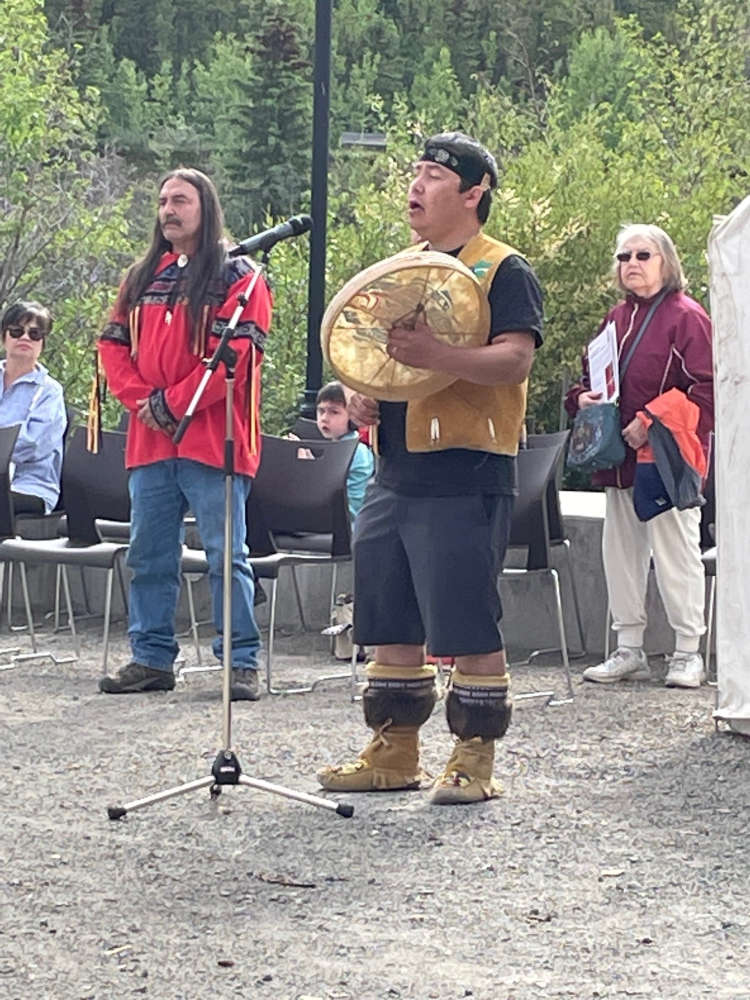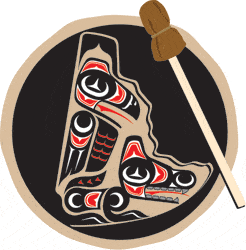
Here is a recap of key themes that came out of the summit.
Accessibility to Language
Sealaska Heritage President Rosita Worl said while her generation was suppressed in speaking her native language, she says she's seeing younger children in schools being immersed in Indigenous languages now.
The colonial border was another topic among speakers regarding accessibility of their Indigenous language.
One example came from Gavin Hudson, co-founder of the Haayk Foundation, who says because there's more fluent speakers of the Tsimsian language in Canada in comparison to the United States, it's often hard to pair up Tsimshian speakers and learners when they're on opposite sides of the border.
Difficulties Around Language
Lance Twitchell, an instructor at the University of Alaska Southeast, says while many young people try and learn their Indigenous languages, it's hard to achieve fluency sometimes with limited resources available.
Many speakers apologized for speaking English during speeches as well and said it's frustrating being able to tell Indigenous stories in English but not in their native language.
Topics of discussion from the breakout rooms however noted it's alright to speak English sometimes, as it can help expand your knowledge and vocabulary in the Indigenous language you're learning.
Time and Money
One Tlingit speaker in the breakout room on the final day noted more focus should be on the younger audiences who will be the next generation to teach Indigenous languages to youth.
Many Elders said since they don't have as much time left as younger teachers, it's important for Elders to teach the proper pronunciation of letters and words to teachers, as they will continue to educate others in these First Nations languages.
More emphasis on speaking outside of classrooms was also told by speakers at the summit, who say language learning becomes easier when its naturalized and spoken in everyday environments.
Money was another factor brought up as well, with another Tlingit speaker noting not everyone should be paid to teach their Indigenous language.
Progress
Tlingit Language Instructor and Developer Sean Mcdougall says he's making language learning more accessible for language learners in the Carcross/Tagish First Nation. He say's his First Nation is partnering with Simon Fraser University to offer non-credential courses free of charge online for language learners.
Mcdougall says a mentorship program is also being created to help connect fluent speakers with language learners in the Cargross/Tagish First Nation.
Creation of audio archives online and language apps were other solutions he's saying to make First Nations languages more accessible for learners who don't have enough money to enroll in courses.
A scholarship for language learners was also announced at the summit for those enrolling in First Nations courses at local universities as well.
Mcdougall says he's seen people in their twenties became fluent in their First Nation languages in as little as five years, and that this summit serves as an inspiration for anyone who is a silent speaker and are thinking of learning their Indigenous language.
Classes in the Tsimshian language are also being taught at the University of Alaska Southeast, helping with revitalization efforts to create more fluent speakers.
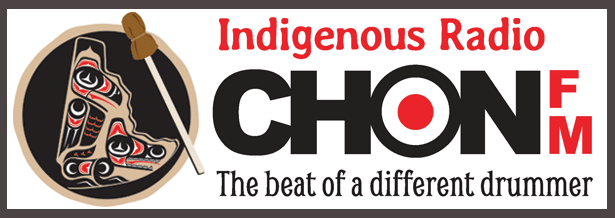
 The end of one Star sparks the birth of another
The end of one Star sparks the birth of another
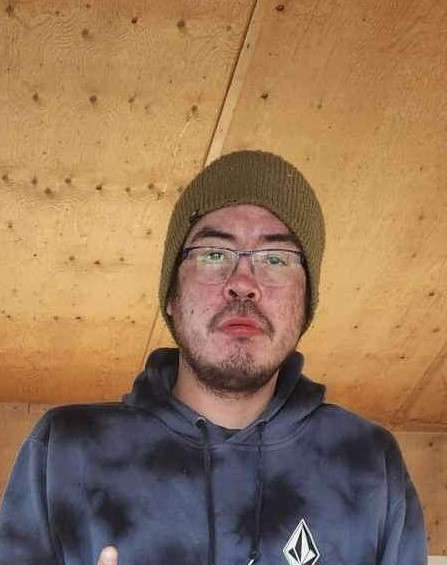 UPDATE: Missing First Nations Haines Junction residents located
UPDATE: Missing First Nations Haines Junction residents located
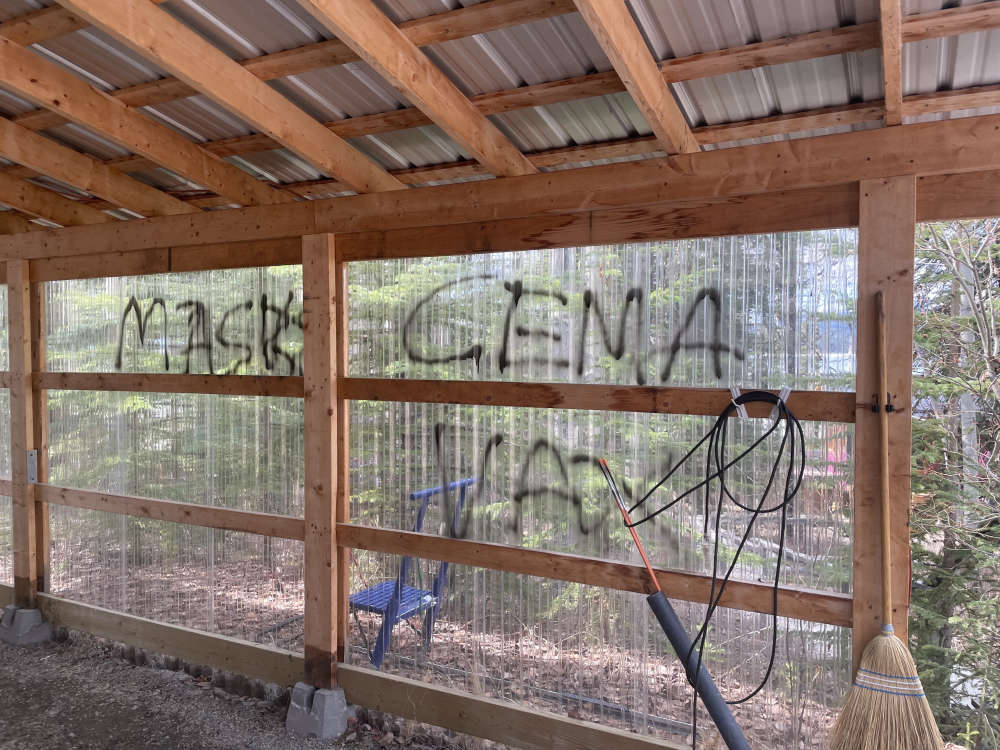 Minister's home vandalized with threats and profanity
Minister's home vandalized with threats and profanity
 Whitehorse Community Thrift Store donates $100K to community organizations.
Whitehorse Community Thrift Store donates $100K to community organizations.
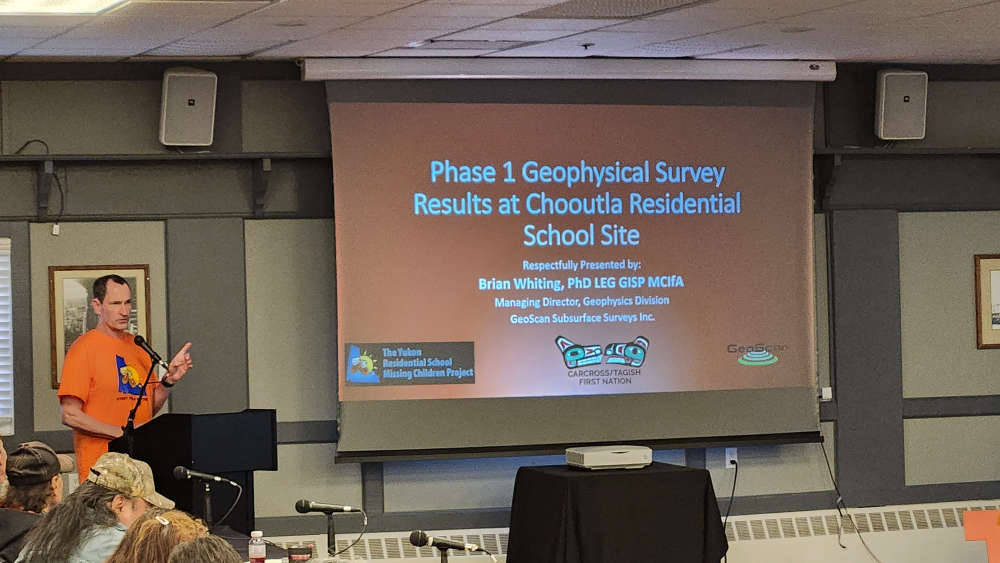 Whitehorse residential school ground searches completed
Whitehorse residential school ground searches completed
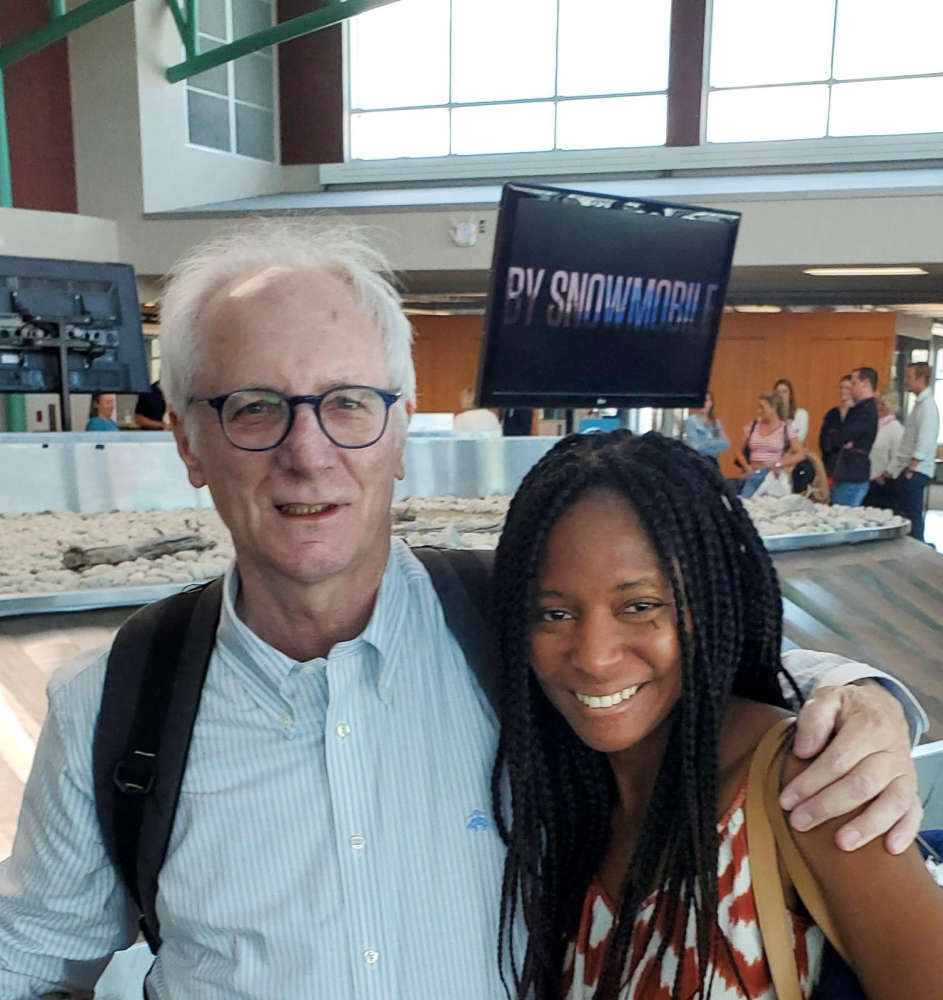 Arrested parent accuses department of Education of escalating matters at Holy Family School
Arrested parent accuses department of Education of escalating matters at Holy Family School
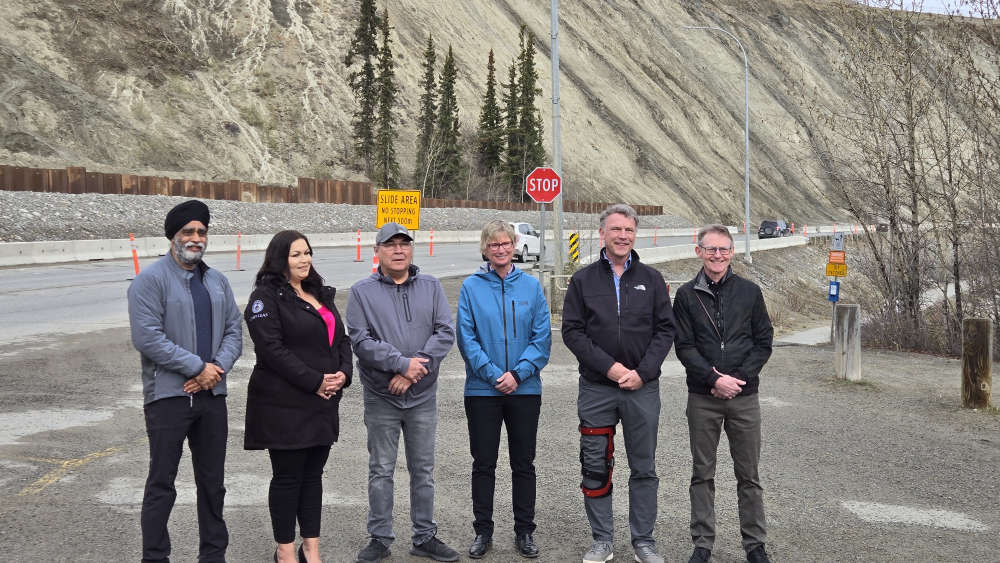 Government of Canada announce over $45M to protect Whitehorse Escarpment and Robert Service Way
Government of Canada announce over $45M to protect Whitehorse Escarpment and Robert Service Way
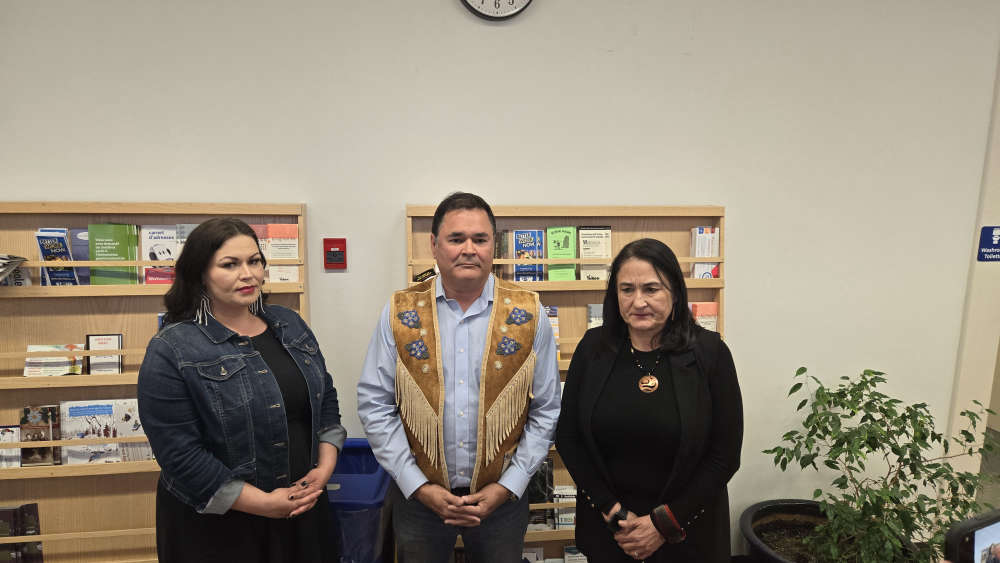 Yukon government passes Health Authority Act
Yukon government passes Health Authority Act
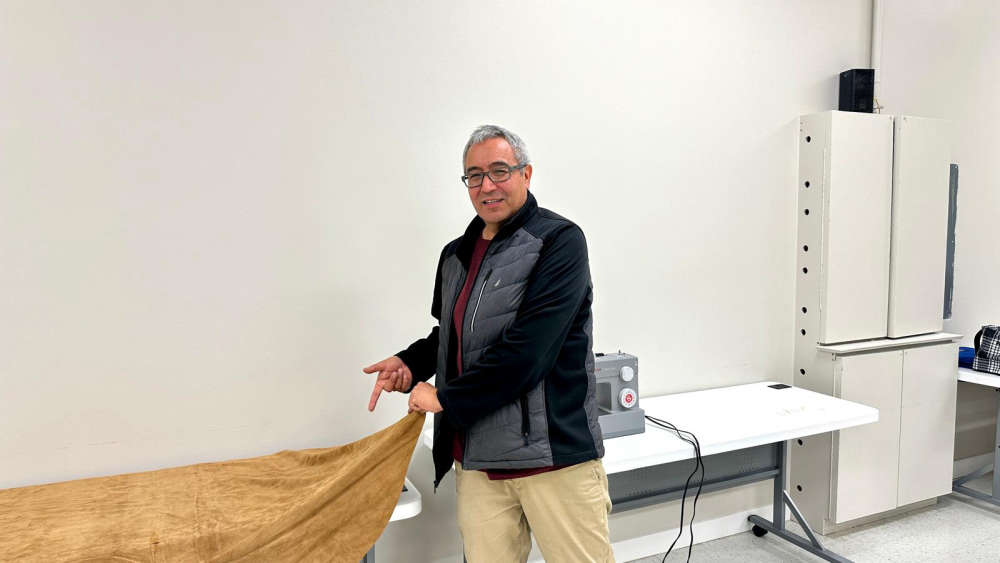 Regalia workshop for special traditional occasions holds in Whitehorse
Regalia workshop for special traditional occasions holds in Whitehorse
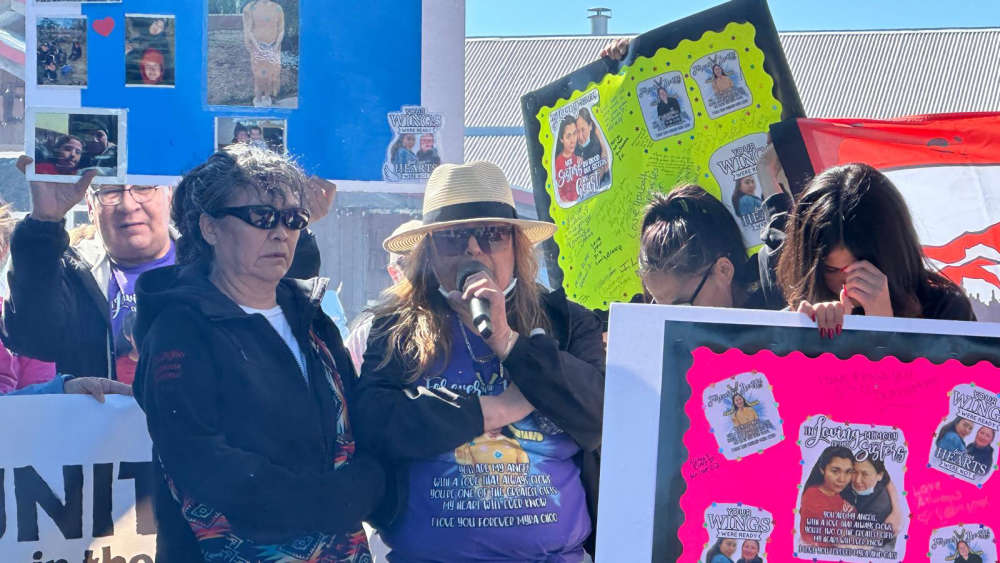 Unity in the Community Walk for four Yukon women who died at the Whitehorse Emergency Shelter held in Whitehorse
Unity in the Community Walk for four Yukon women who died at the Whitehorse Emergency Shelter held in Whitehorse
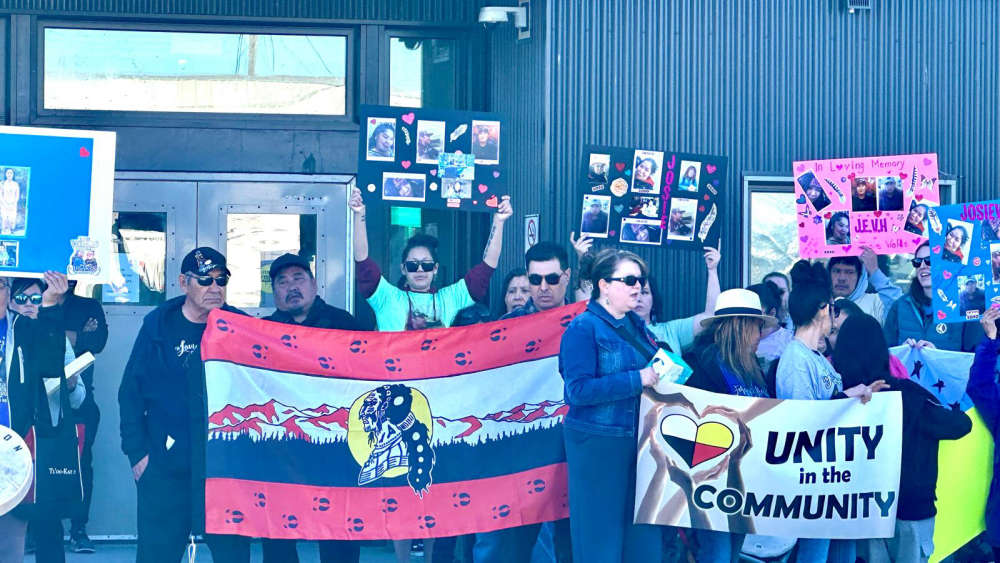 Testimony hearing into the deaths of four Yukon women comes to an end.
Testimony hearing into the deaths of four Yukon women comes to an end.
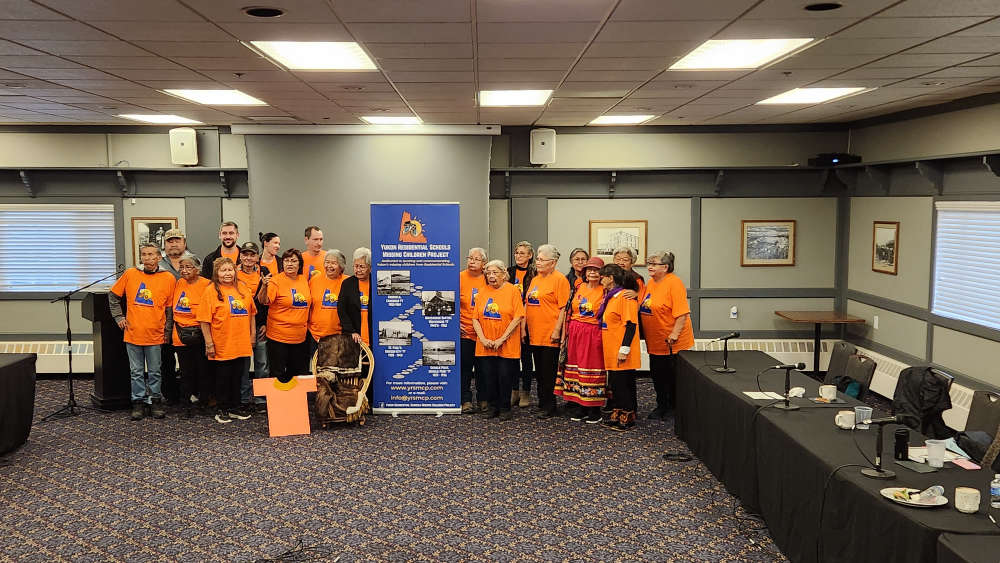 Ground searches at two former Whitehorse residential school sites begin this week
Ground searches at two former Whitehorse residential school sites begin this week
 Coroner's Inquest sees footage of lifeless body ignored for more than 12 hours
Coroner's Inquest sees footage of lifeless body ignored for more than 12 hours
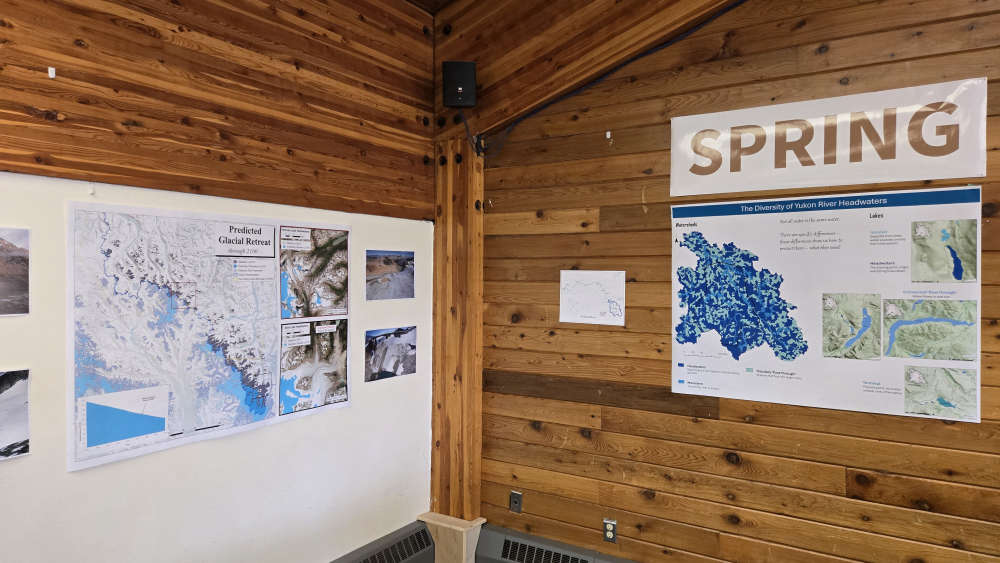 How We Walk with the Land and Water holds two open houses
How We Walk with the Land and Water holds two open houses
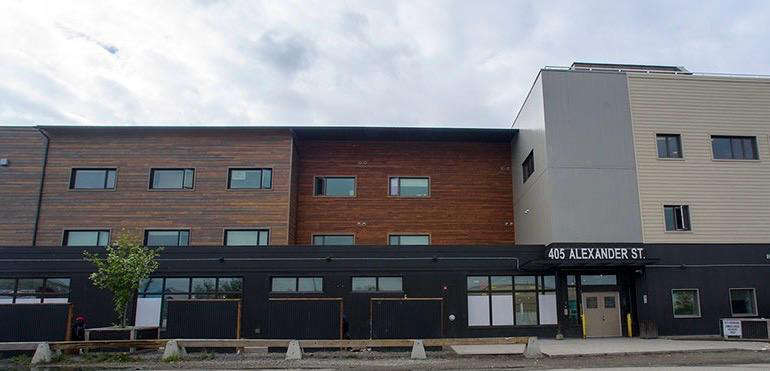 Whitehorse Emergency Shelter staff not trained for emergencies, inquest hears
Whitehorse Emergency Shelter staff not trained for emergencies, inquest hears
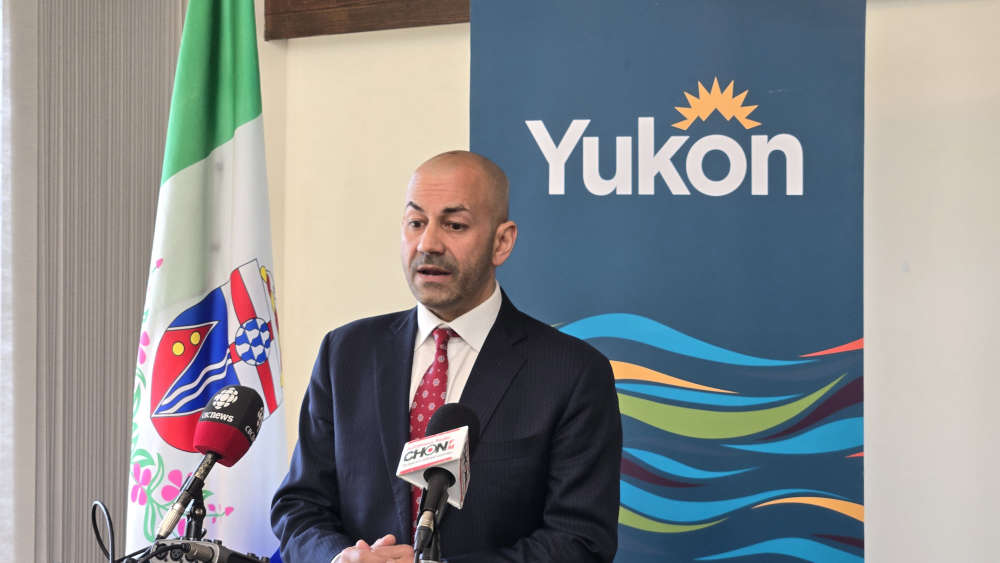 Premier pledges to meet with Yukoners living in tents to help them find housing
Premier pledges to meet with Yukoners living in tents to help them find housing
